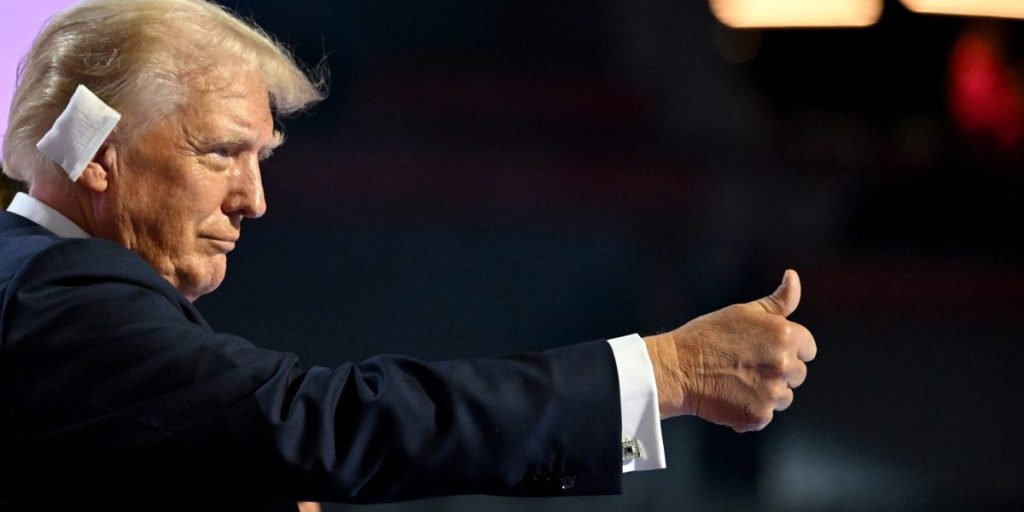The credit industry’s version of the “Trump Trade” is starting to take shape: buy high-yield U.S. bonds and avoid anything inflation-sensitive.
With the assassination attempt and the Republican National Convention helping Trump rise in the polls, corporate bond investors around the world are already positioning to profit from a possible election victory for him. Spreads on U.S. high-yield bonds rose compared to euro zone bonds last week, and inflows into junk-bond funds surged globally.
“U.S. high-yield bonds are the trade,” said Al Cattermole, a portfolio manager at Mirabaud Asset Management. “They’re more domestically focused and driven by U.S. economic activity.”
Late June interview Trump told Bloomberg Businessweek he wants to cut the corporate tax rate to 15%, a cost-cutting measure that could improve the creditworthiness of weaker companies. If the Republican candidate wins, U.S. companies could also benefit from protectionist policies that would impose high tariffs on imports.
U.S. junk bonds are attractive to asset managers because, excluding financial institutions, more than half of borrowers with top junk ratings have only domestic revenue, compared with just one-fifth of higher-rated borrowers, according to a Bloomberg News analysis. The data doesn’t include companies that don’t disclose the information.
Domestic manufacturers could also benefit from tariffs and deregulation.
“We’ve been adding U.S. industrial stocks that will benefit from the new administration’s pro-business stance,” said Catherine Braganza, senior high-yield portfolio manager at Insight Investments. “Companies that benefit from industrial manufacturing, especially those that deal in spare parts” are attractive.
Yield Curve
Some fund managers are keeping a close eye on the shape of the yield curve, especially as corporate bond spreads approach their lowest levels in more than two years and appear to have little room to fall further.
“We shortened duration by holding short-dated bonds, trading futures and steepeners,” said Gabriel Fore, a portfolio manager on Algebris Investments’ global credit team, referring to investments that stand to profit if the spread between short-term and long-term yields widens.
While the spread has widened this year, it remains well below levels before major central banks began raising interest rates to tackle runaway inflation. Bondholders can now get just 30 basis points of extra yield by holding seven- to 10-year global corporate bonds instead of shorter-term notes, according to a Bloomberg index, well below the 110 basis points they got just before Trump left office in 2021.
This creates room for the yield curve to steepen further, especially if interest rate cuts by the Federal Reserve coincide with the former president’s policies, which are expected to be inflationary and lead to an increase in the national debt.
To be sure, not all money managers have switched to Trump portfolios yet. It’s still not a certainty that Trump will win, and even if he does, it’s not entirely clear what he’ll do once in office.
“It’s too early to adjust portfolios based on assumptions about what will happen if Donald Trump becomes president,” said Joost de Graaf, co-head of the credit team at Van Ranschot Kempen Investment Management. “We expect spreads to tighten a bit over the summer.”
If Trump wins, markets sensitive to rising interest rates, inflation and tariffs are expected to become more unpredictable.
“High interest rates for longer would be bad for emerging markets and tariffs would weaken economic growth,” Mirabeau’s Cattermole said. “We expect European high-yield bonds to underperform over the next nine months.”


